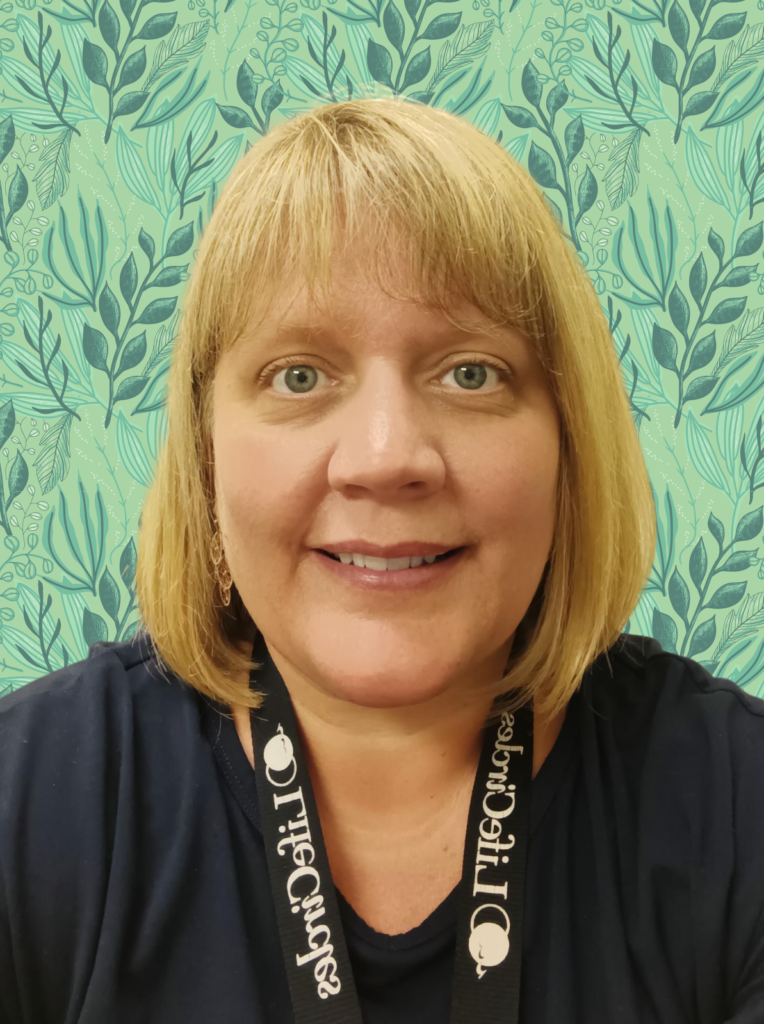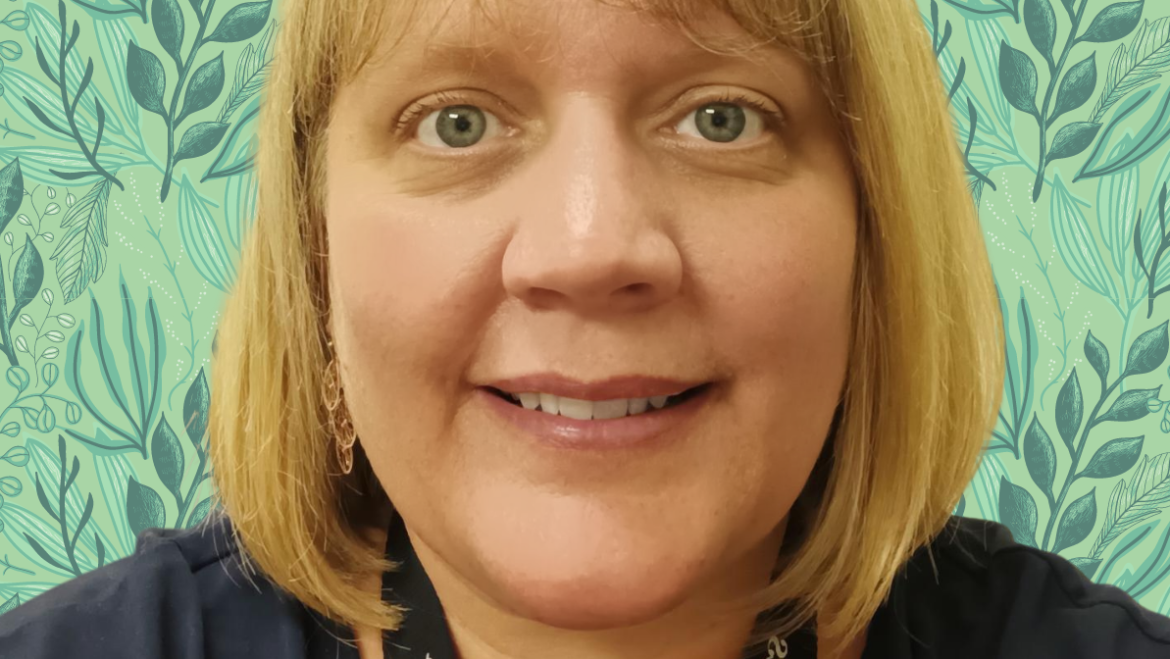At LifeCircles, we pride ourselves on our healthcare services, our relationships—both internally and externally—and our programs. We were delighted to learn in May 2020 that we had been awarded a Michigan Health Endowment Fund (MHEF) grant that could help us bolster our dementia care program and bring Positive Approach to Care (PAC) to West Michigan.
With funding from this grant, our team set out to impact the communities we serve along the West Michigan Lakeshore. The pandemic made us rethink our plans and forced us to get creative, especially as we went into lockdown for all those months. We had to prioritize the health of many at-risk participants.
Luckily, nowadays, we have lots of creative ways to bring PAC to our community! It’s our goal to make the Lakeshore region more friendly for people experiencing brain change and to provide resources, for caregivers, and person’s living with brain changes themselves.
What is PAC?
PAC is a program that aims to provide holistic care to those living with memory changes, caregivers, and healthcare workers. The program puts the individual’s unique strengths and needs at the forefront of the medical profession. With PAC’s people-first approach, it’s no wonder why LifeCircles was so eager to embrace this program. Because the program is relationship-focused, it pulls from various interdisciplinary strengths, including occupational therapy, neuropsychology, adult education and learning, geriatric medicine, behavioral studies, and more. They all come together in one program, designed to teach practical skills you can apply today.
The PAC program includes several skills that help our team members when they’re interacting with participants, caregivers, and even each other. To roll it out, we held an all-staff training session, followed by optional additional training sessions. Over a third of our team chose to continue training with these optional courses!
Dementia Insights
The PAC program is not solely used for people with dementia, Alzheimer’s or other brain changes. However, it has helped many of those living with dementia that are participants in our LifeCircles PACE program.
Over the years, we’ve witnessed several common misconceptions about dementia, including:
- If someone has dementia, family members may believe there is nothing we can do. Essentially, many people believe that because there is no cure, nothing can be done to help the person or improve quality of life.
- People also assume that having dementia means you need to live in a facility. Not necessarily! LifeCircles can partner with you to create safety and comfort at home.
- Some people assume living with dementia is all about loss and suffering. Nope! There is such thing as living well with dementia.
Brain change can be incredibly hard for families, caregivers, and people living with it. We believe there’s also a lot of opportunity for moments of joy when we have the tools and perspective needed to enjoy these moments. We want everyone to know that there are several steps that can be taken to make life worth living, even with progressive cognitive illnesses. It is important to help support people through honoring their strengths. We encourage caregivers and team members alike to appreciate and celebrate everyone’s individual preferences, retained skills, and humanity at any phase of the disease. PAC can help us learn how to do this in practical and tangible ways.

We can honor those living with dementia, by pulling forward the things we know are most important to the person and those around them. The PAC process facilitates healing for families, caregivers, and people living with brain change. The team at LifeCircles works hard to utilize the PAC program, along with knowledge about our participants to support quality of life.
Creating an ImPACt
Of the individuals that LifeCircles services, over 60% are living with a form of brain change or dementia. Though PAC is primarily geared toward those living with dementia, it can be helpful for everyone—people with intellectual/developmental disabilities, mental illness, or other forms of brain change. For those who have experiences stress lately, either from caregiving, pandemic life, or other sources – a PAC approach could be helpful to enhance wellness and engagement too! The relationship-first, strength-based approach helps our team make a big impact in the lives of those we serve.
With the help of Jennifer Haak, LifeCircles’ PAC coordinator, we have been able to disseminate and incorporate as much PAC knowledge as possible, both internally and within the communities our PACE program serves. Jen’s enthusiastic personality has been instrumental in integrating PAC education and getting team members excited about the program.

Community Efforts
Caregivers
LifeCircles has been internally utilizing PAC with many participants in our program who are living with brain change, or dementias. We’ve even found ourselves using our PAC skills between our team members! A large part of our PAC focus is on creating impactful change for care partners, through both group training and individually tailored coaching
The program is often a gamechanger for participants who may struggle to accept care from others. Our team will observe these often-frustrating situations for both the person living with memory challenges, and for those offering care. Then, we will work with the caregiver to develop new strategies that benefit them and their loved one. Let’s be honest, if both the individual living with dementia and their care partner are frustrated throughout most interactions, no one is living their best life. Initially, we practice new skills with the caregiver through roleplay, and then we bring the participant in and provide feedback on the interactions. This has helped several caregivers and participants to better communicate needs, compromise, and improve everyone’s quality of life.
Law Enforcement
In addition to our internal efforts, our team has also been focused on the other areas of our grant, which includes supporting our Lakeshore communities in becoming more brain-change friendly. Jennifer Haak has been leading Crisis Intervention Training (CIT) for local law enforcement that centers on responding to people experiencing brain change. She has also partnered with the Safe Seniors Coalition to share PAC training with other emergency responders and public servants.
These sessions focus on utilizing PAC skills to de-escalate situations with people who may simply be confused. The training includes discussions about brain change and building skills to improve difficult interactions, and role-played simulations. At any point during these scenes, trainees and facilitators can pause the exercise to give feedback and discuss alternate de-escalation techniques. This work has been well received by local law enforcement teams, and we believe it will help reduce preventable altercations and reduce resource use by our first responders.
Community Education
In the upcoming months, our team will be exploring new ways to educate the broader West Michigan region about brain change and ways that all of us can help. Since someone in the world develops dementia every three seconds, it is incredibly likely that a community member will have an interaction with someone experiencing this condition at some point in their lives. Our team wants to ensure that community members know how to appropriately respond to and support people experiencing brain change throughout our day to day lives. We also plan on discussing common misconceptions and simply spreading education about various brain changing conditions.
We’re proud of the work we’ve done so far and are looking forward to everything we can continue to achieve with PAC at LifeCircles and along the Lakeshore. If you or someone that you know is struggling with getting the brain change education and support that they need, do not hesitate to contact us. After all, we’re here to help!
Last Updated on May 24, 2022
